TT a key partner with EU
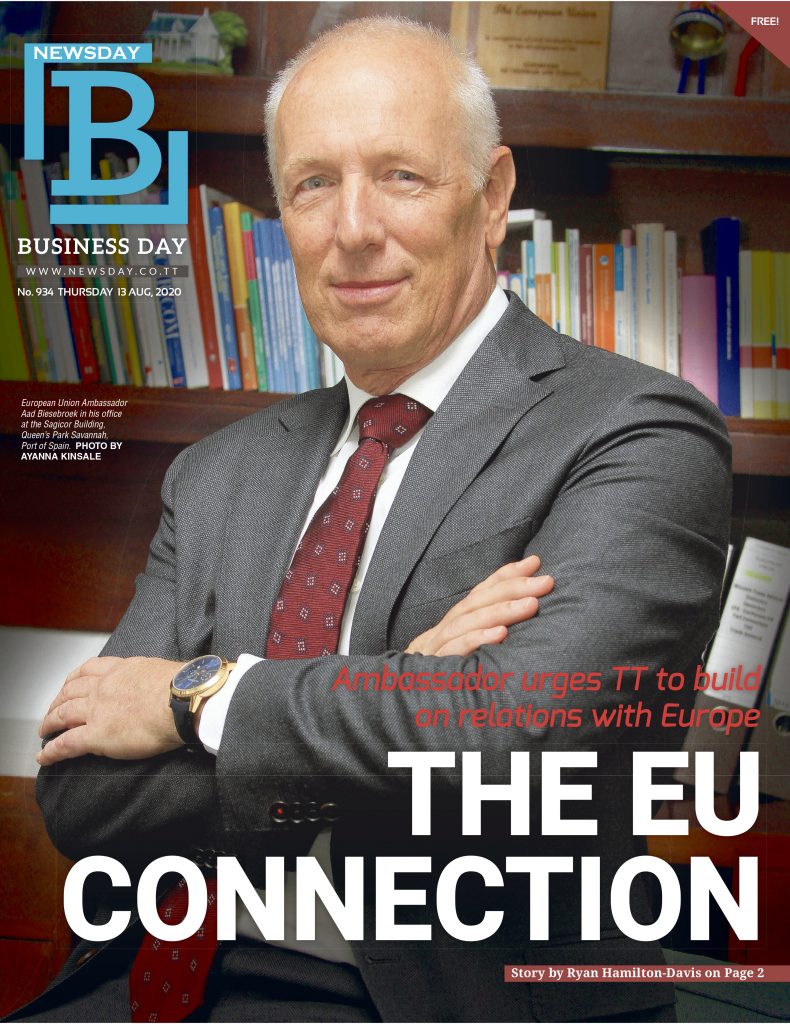
While the European Union’s new ambassador has not been named yet, outgoing EU ambassador Aad Biesebroek suggests his replacement look at areas the EU has identified where it thinks it can contribute, thereby furthering relationship between EU and TT.
Biesebroek said in his four-year tenure as ambassador, his office identified a few areas where the EU and TT could work together. Among those areas are managing TT’s water shortage and flooding.
But most of all, he hoped that the next ambassador would work to continue the investments the EU made in changing policies and implementing programmes that would continue the conversation in TT about clean and sustainable energy.
In an interview with Business Day, Biesebroek said the EU has been preparing the ground for upcoming negotiations on the relationship between countries for the next seven years.
He said among the other opportunities the “green area” would be where the EU could best contribute. He encouraged his successor to continue encouraging action on energy and energy efficiency, which he said would lessen the country’s carbon footprint, and open prospects for additional investment and employment.
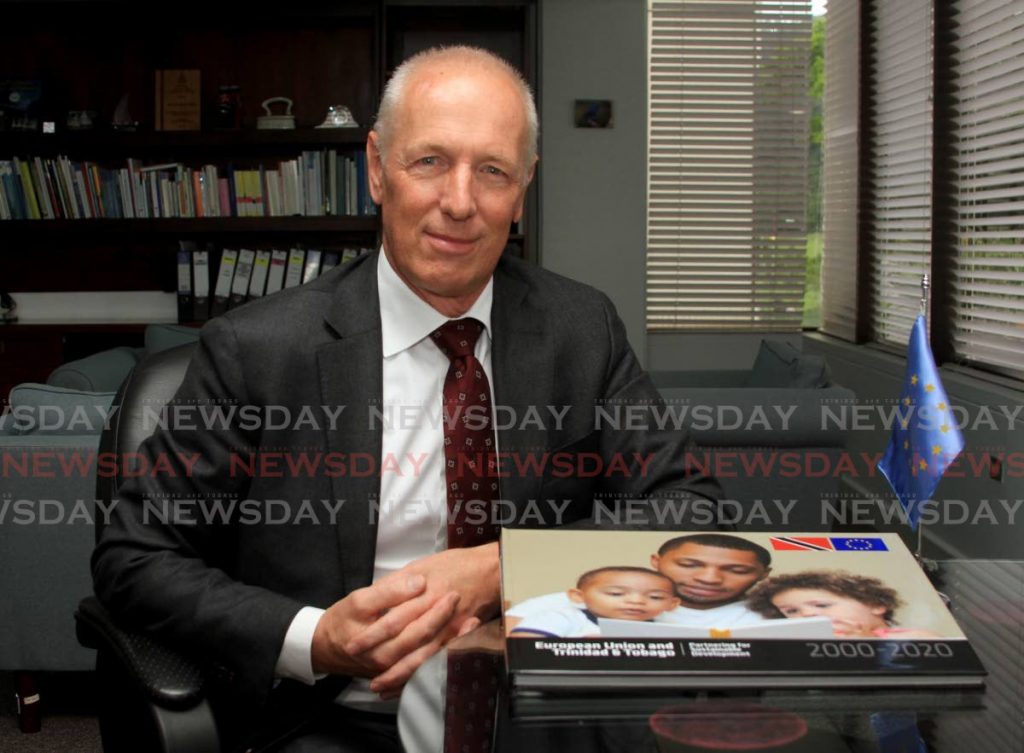
“There is enormous potential for renewable energy and I think much more can be done than what is currently in the pipeline.”
Biesebroek, who is Dutch, has been working at the European Commission since 1990 in the field of external relations and development cooperation and served in various delegations in Africa as well as in the European Union's headquarters in Brussels. Prior to his appointment to TT, he served as head of cooperation in the Delegation of the European Union to Zambia and the Common Market for Eastern and Southern Africa (COMESA). When he came to TT in 2016, one of his personal goals was to try to promote the discussion on the relevance of renewable energy and energy efficiency in TT. He said as a signatory to the 2016 Paris Agreement it made more sense to the country financially to diversify from the use of gas to generate electricity and find alternative and sustainable forms.
He added that there was also an obvious environmental benefit for the country as it is one of the major contributors to greenhouse gases in the Caribbean.
“If you look at emissions per capita, TT is one of the important contributors to greenhouse gases per capita. It was part of my mandate to start the discussion of clean and renewable energy. We found an open and willing ear with a lot of the local stakeholders and civil society organisations within ministries, and certainly at a technical level. People were convinced of the need to move in that direction.”
Over the past four years he made sure to push that conversation forward. He also tried to achieve other mandates which included promoting human rights issues and creating dialogue locally to create awareness about important issues like abolishing the death penalty, supporting LGBTQI+ rights and sexual rights, and stopping violence against women and girls.
When he arrived there was an ongoing programme promoting new environmental policies. But that project was only partly successful. It started during a previous administration and it had to be re-oriented.
However, the project saw the start of discussions on capturing greenhouse gas emissions through introducing buses that would run on LNG.
“A number of things were done but we didn’t achieve all the objectives that were defined,” he said.
He added that the EU managed to come up with funding to help government start rolling out other renewable energy activities. One is the construction of a solar park at Piarco Airport.
“We have a ground agreement with the Airports Authority so it is the authority that is implementing the programme, but they came to us for financing so we provided the support and the technical assistance in the preparation of the whole package.”
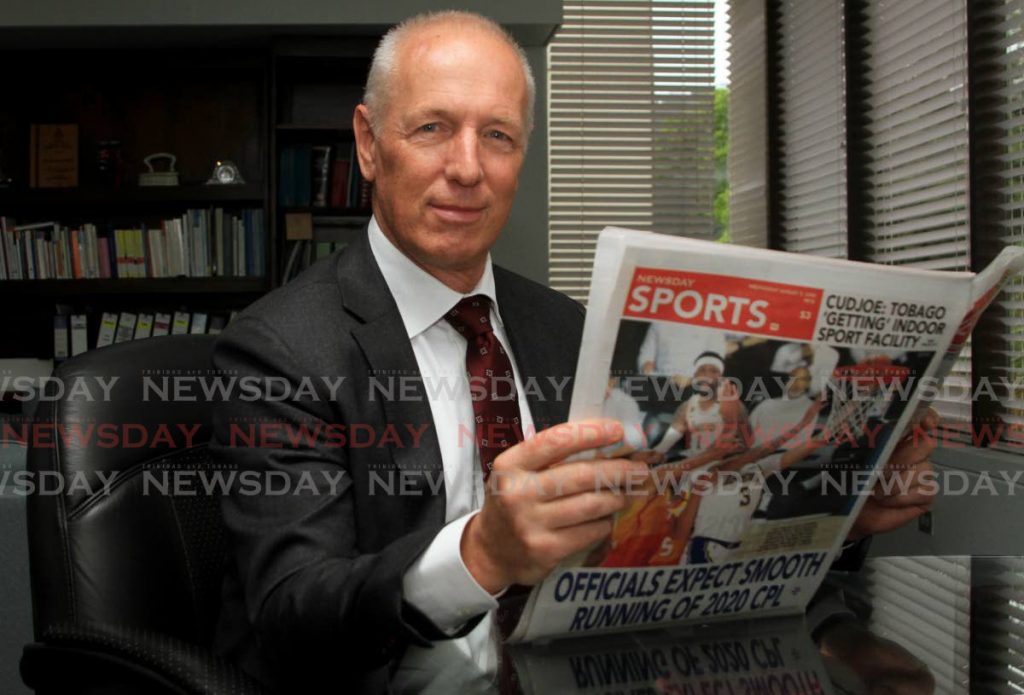
The EU are also working in conjunction with the UN Development Programme (UNDP) to promote renewable energy through rooftop solutions, that is, putting solar panels on rooftops to provide homes with clean, renewable energy.
“We are also providing technical assistance to the Ministry of Energy to look at policy and legislative issues and creating activities in the public. The UN recently called for an expression of interest for rooftop solutions, so they are now making an inventory of potential investments and that will be followed for tenders for the private sector to implement it.”
Biesebroek also achieved his mandate to continue conversations on human rights issues, through last year’s signing of the spotlight initiative which the EU along with government will promote discussion and policy reform on violence against women and girls.
He said they have also been consulting locally with civil society and the business community, and areas such as water management and flooding were identified as areas where there would be opportunities for TT and EU to work together.
"In the dry season potable water is in short supply. Some people do not have access to tap water on a regular basis or for only a period of time in the week. There are opportunities there.”
He believes an upgrade in infrastructure would assist greatly in water management but also suggested cost-reflective tariffs that could be diversified based on cost.
“So basically you have a social tariff, and for the wider use you would have commercial rates.”
The EU also took notice of the flooding problems in TT and saw opportunities to assist there as well.
“When it rains, it rains so heavily that parts of town and other parts of the country get flooded. There may be a need to redirect some of that water into reservoirs.”
But for all the programmes and projects initiated and completed during his time as EU ambassador, there were still some which Biesebroek wished he could see come to fruition. He said although he would not be ambassador, he will be looking at the news to see the completion of some of the programmes started under his tenure.
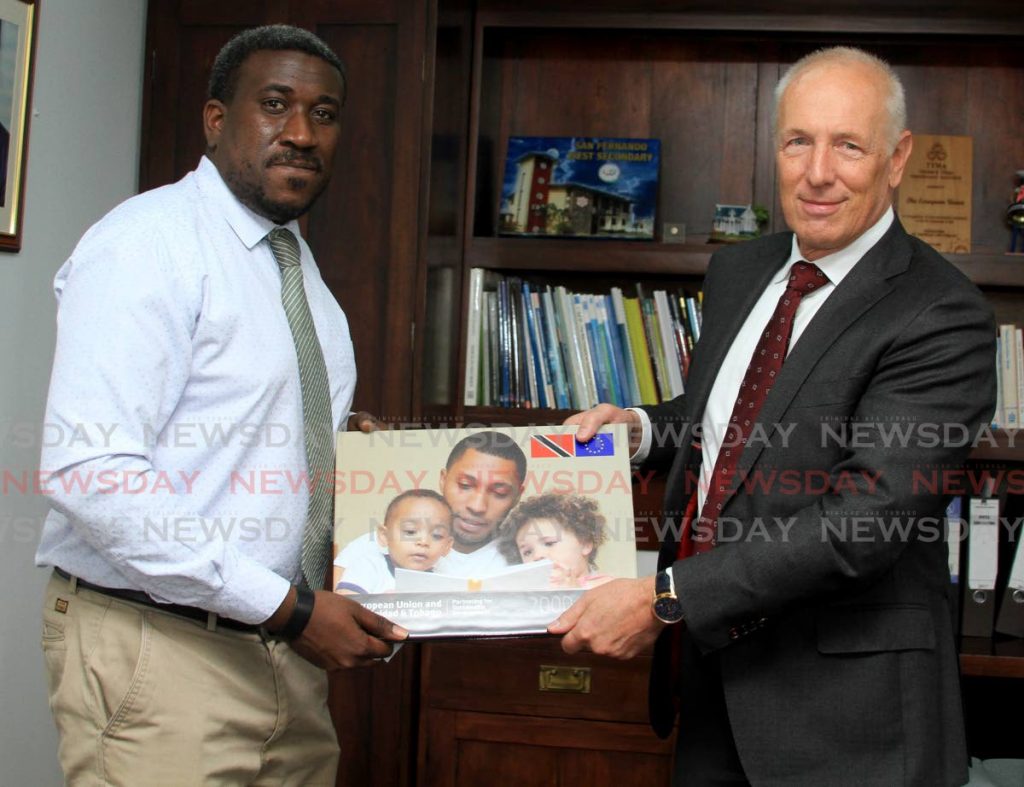
The solar park, for example, when completed would only provide Piarco Airport with seven per cent of the electric needs.
“There is room for more. There is so much they could further in that programme. There is potential for finding financing on the external market with some development banks that can make funding available, and through our grant agreement the overall investment has become fairly attractive. So that is something I will continue monitoring.”
Biesebroek said the downside to being a diplomat is sometimes having to leave a post before all the objectives are met and projects are completed. “We have our assignments and we have to pick up activities that were started by our predecessors and continue to implement them and hopefully to fruition, but we also start new projects, and they don’t always come to the end result, which is sometimes sort of a frustration.”
But, he said, having to move on from one phase to another is a part of his job as an ambassador and a wise thing to do. Biesebroek worked for the European Commission since 1986, so by the time he leaves at the end of August he would have worked with it for more than 34 years.
“In the beginning I was based in Africa, Zimbabwe and Uganda. I was more on the administrative side in those days, even though I was involved in certain development corporation activities, in particular in trade promotion and human resource development activities. That inspired me to switch from more administrative type approach to working more on development co-operation and external relations. And that is what I have been doing since 1998.”
He said his experience allowed him to understand the substance of problems that a government may face.
Ultimately, Biesebroek said his tenure here in TT was a most fulfilling and enjoyable one. Aside from the professional relationships he developed in the government and in the private sector, it was the personal relationships and experiences he enjoyed the most.
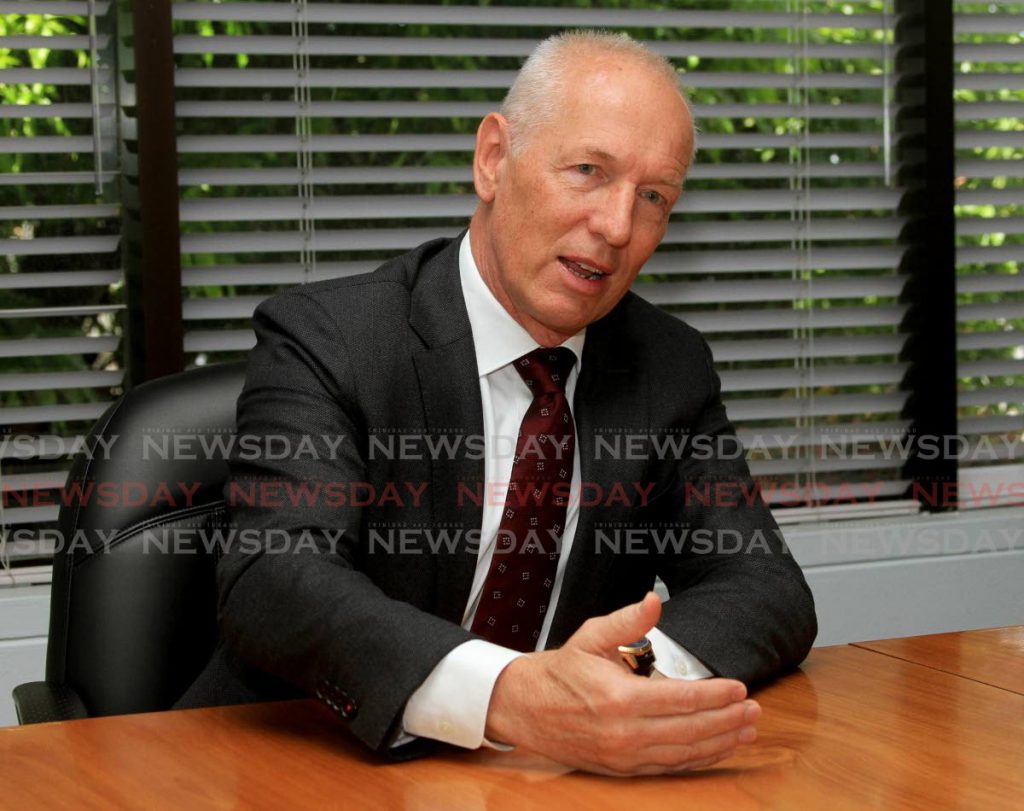
“We are used to coming and going. It is part of our job. It is normal that we move to another location, but it is always bittersweet. Over the past four years we have built up relations with people in our own diplomatic community, but also locally.
“I think you have a beautiful country and the climate is very attractive for outdoor activities. We made very good friends here and those are the things you cherish. Your Carnival is very special so we engaged last Carnival in mas with Peter Minshall, because we really enjoyed the traditional mas. We were here every year for Carnival. Both my wife and I love taking photos, so we thought it was very enjoyable.
"I love roti, but I was already familiar with it because of my time in Suriname and Guyana. So I will continue to have roti. Even when I go home.”
After a short stint in Brussels in an advisory role on the work he has done in the Caribbean, he will retire in February 2021.
He is still exploring opportunities but would like to continue to be active.
“I think professionally it is always good to terminate a certain chapter and move on. I am moderately satisfied with what we managed to achieve in TT, so in that sense I could leave with a good feeling."

Comments
"TT a key partner with EU"